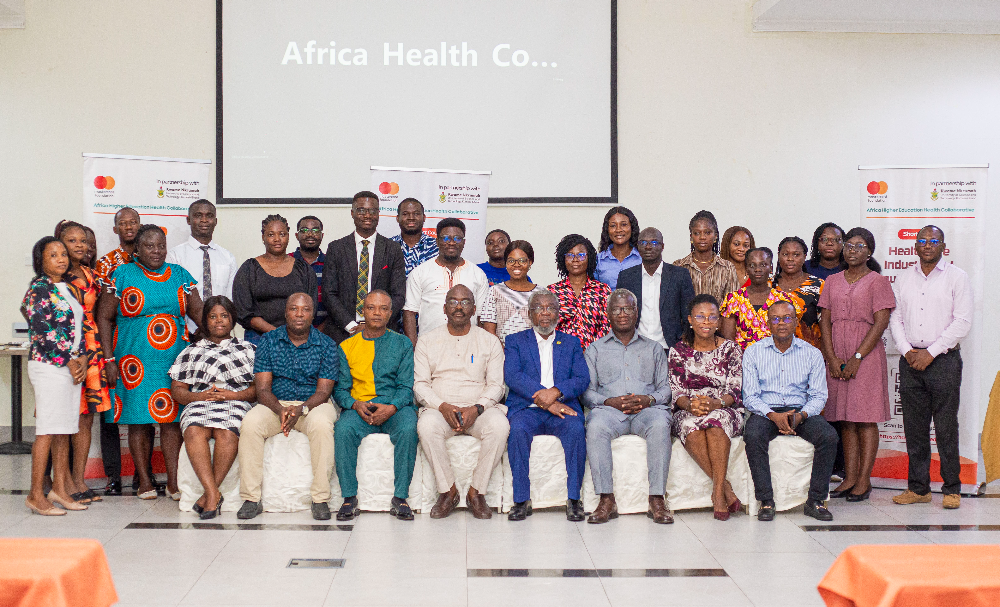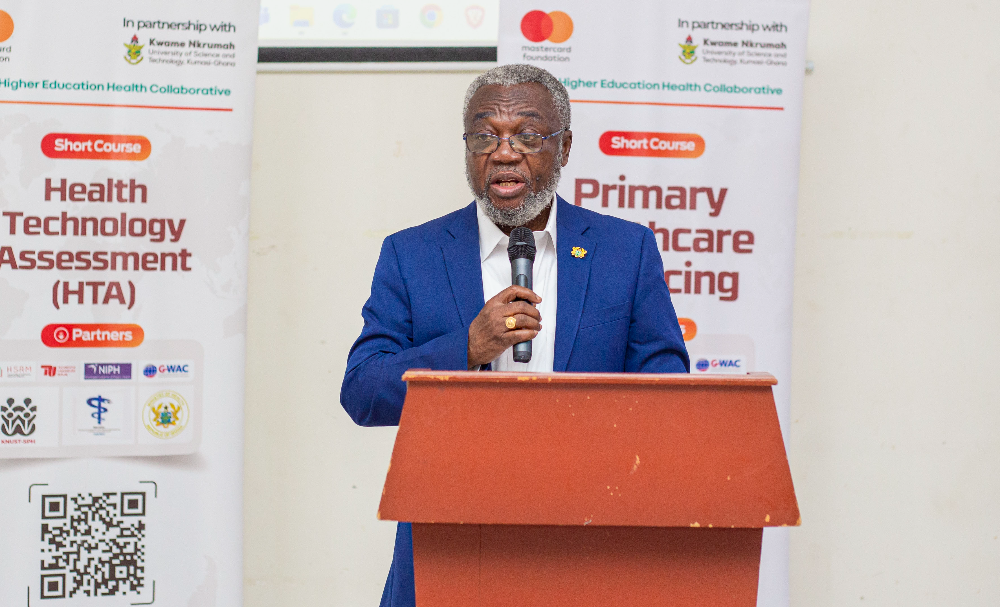Dr. Anthony Nsiah, a former Presidential Advisor on Health has emphasized the critical need for sustainable financing models to strengthen Ghana's primary healthcare system, describing it as the cornerstone of universal health coverage.
He was speaking at the opening of a Primary Health Care Financing short course organized by the Africa Health Collaborative at Kwame Nkrumah University of Science and Technology (KNUST).

The week-long training program in its third year, spearheaded by the Health Employment pillar of the Mastercard Foundation Africa Health Collaborative, KNUST under the leadership of Dr. Kofi Akohene Mensah, is equipping 20 selected health personnel with essential skills in healthcare financing. Participants include medical professionals, administrators, and policymakers from across Ghana's healthcare sector.
"Primary healthcare remains the most effective way to deliver health services to our population, yet it still fails to meet the needs of many Ghanaians, particularly vulnerable groups like the aged," Dr. Nsiah stated. "To make primary healthcare truly effective, accessible and sustainable, we must continuously invest in building the knowledge and skills of our health workforce, particularly in financing mechanisms."
The health economist highlighted how primary healthcare financing addresses critical gaps in health service delivery.
"This training will empower professionals to understand financing models, budgeting processes, and resource allocation - skills that are desperately needed in our health system," he explained. "Having worked extensively within Ghana's health sector, I can confidently say this capacity building initiative is exactly what we need to move forward."
While acknowledging government efforts to improve healthcare financing through initiatives like the National Health Insurance Scheme, Dr. Nsiah pointed to persistent challenges. "Significant gaps remain in financing cost-effective preventive services," he noted. "This leaves many Ghanaians facing impossible choices between risking health-related economic hardship or foregoing healthcare altogether."
Professor Anthony Adusei, full Professor in Health Promotion and Disability Studies in the School of Public Health at KNUST, assured participants that the intensive course would meet their expectations. "We have carefully noted your expectations, and we assure you that by the end of this program, we will have achieved most, if not all of them," he stated.


















